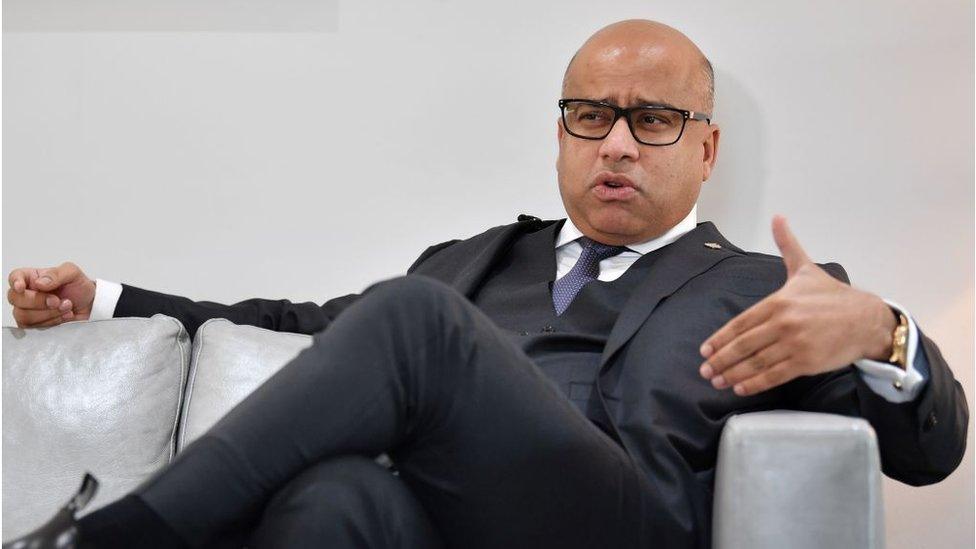Clock ticking on Gupta's fight to save his empire
- Published
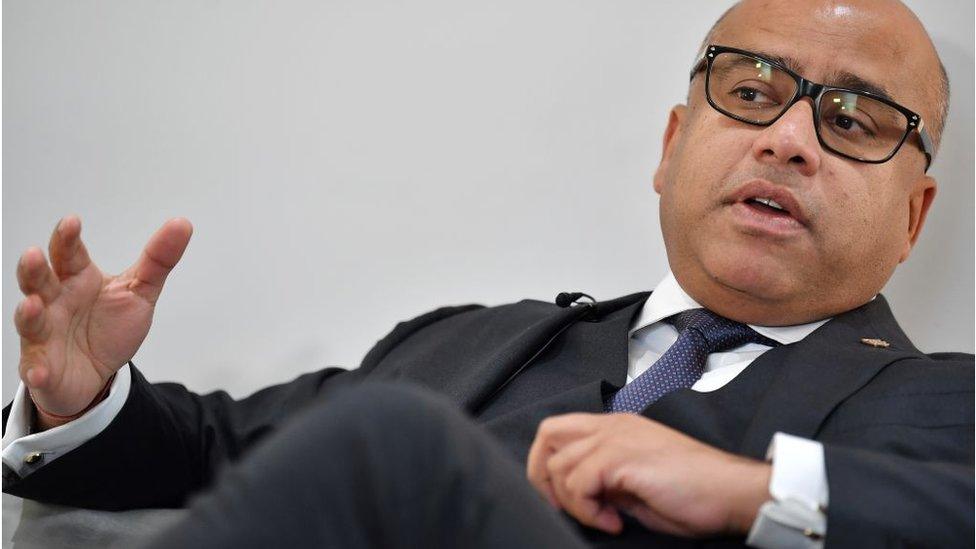
Sanjeev Gupta, head of the GFG Alliance
The time is fast approaching when the government's resolve to save the UK's third largest steel maker will be tested.
Sanjeev Gupta is desperately seeking a source of operating cash to replace the collapsed financier Greensill Capital which kept Liberty Steel owners GFG (Gupta Family Group) Alliance afloat.
Company sources admit they are looking at selling current inventory for short-term cash with a view to buying it back when needed - a practice it insists is not uncommon.
Speaking to the BBC last week, Business Secretary Kwasi Kwarteng said: "We should take him at his word and give him time to find finance."
But time is running out as "victims" of the Greensill collapse prepare their claims to liquidate some of the assets Gupta pledged to Greensill to keep the cash flowing.
Applications to compel the liquidation (winding up orders) of three Liberty Steel group companies have been filed and were originally due to be heard by a judge next week.
'Nuclear option'
Insolvency experts say winding up orders are the "nuclear option" for creditors trying to get their money back and their very existence will severely hamper Mr Gupta's own attempts to save the business.
Alex Jay from Stewarts Law told the BBC: "Winding up petitions are one of the most aggressive steps in a creditors' armoury - they can lead to the end of a company's life and carry other very draconian legal consequences. The fact that petitions are being pursued against the Liberty businesses means that creditors plainly think they need to move quickly and urgently to protect their position.
"The winding up petitions add significant pressure and urgency to any rescue measures that are being considered. Any external financers will also be looking very closely at the winding up proceedings, in particular, what is being alleged, and what is owed, and this may be an obstacle to securing new finance."
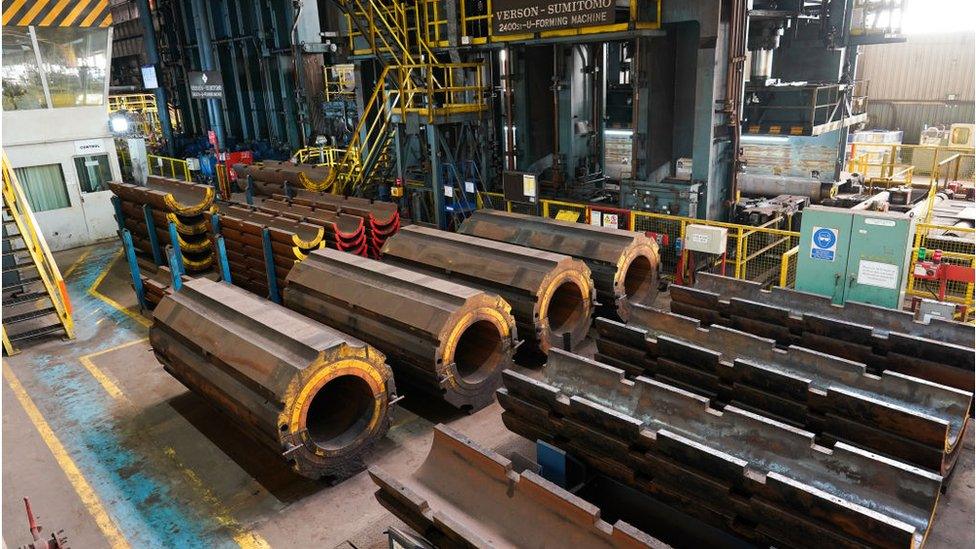
The Liberty Steel Pipe Mill in Hartlepool
Mr Gupta knows full well how damaging this is. In a letter to the business secretary dated 20 April he refers to them as "damaging actions pursued by some parties".
The date for the hearing of these applications was originally scheduled for early May but the BBC understands that timeframe is expected to slip due to new COVID-related rules designed to prevent the hasty liquidation of firms damaged by the pandemic.
Mr Gupta is expected to say that Liberty fits that description as orders from aerospace customers plunged as international travel collapsed.
However, people familiar with the matter say the creditors' real concern is not falling aerospace orders but that no-one seems to be able to locate £3bn of finance that creditors allege Greensill advanced to Gupta and remains unpaid and unaccounted for. Mr Gupta denies any wrongdoing and maintains his business dealings have been transparent throughout.
'Formal request'
However, the government has already turned down a request from Mr Gupta for a taxpayer bailout of £170m citing concerns about the "opaque" nature of his metal empire.
In his most recent letter asking for financial assistance, he bafflingly insists his last request for financial assistance has been misunderstood despite the previous letter asking for it to be considered a "formal request" for government help.
In any event, if the court applications are granted, the government's hand may be forced.
A winding up order would see the appointment of an official receiver tasked with liquidating the company, which employs 5,000 people. At that point, the government would have to decide whether it would instruct the receiver to keep the company going at tax payer expense.
A similar arrangement with British Steel cost the UK taxpayer over £500m for the five months it took to find a new buyer.
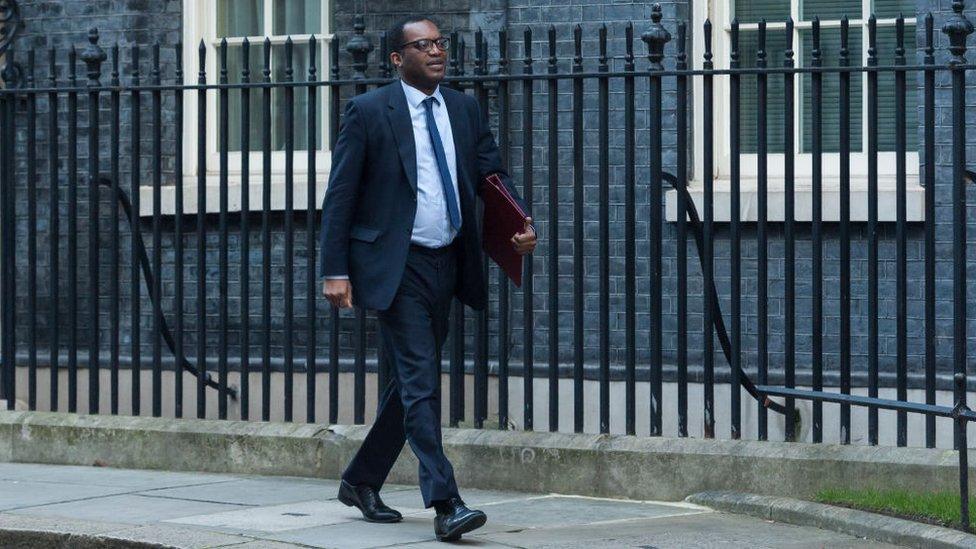
Business minister Kwasi Kwarteng has cited concerns about the "opaque" nature of Mr Gupta's empire
It is not impossible that Mr Gupta finds someone prepared to advance him the money he needs to fight another day but his creditors would have to agree to the new arrangement. If they thought there was a chance they would get a bit more of their money back than a fire sale of assets they might agree to it, but optimism among those to whom he owes money is not high.
Sanjeev Gupta recently told the BBC that "not a single plant will close while I am in charge".
That is bold and potentially counterproductive.
The government has made it clear that it is not prepared to help rescue a company still owned and run by a man who regularly flies by private jet and owns a house in Belgravia he recently bought for £42m.
Government sources suggest that the clearest way to seeing the bits of Gupta's empire they want to save is for the company to go bust - one way or another. Only then can the government be confident it is rescuing what it wants to rescue.
The one-time "saviour of steel" is now perceived by government as a barrier to its salvation.
Sources close to the creditors of collapsed financier Greensill say that the future of this UK steel maker needs to be saved from Sanjeev Gupta.
- Published21 April 2021
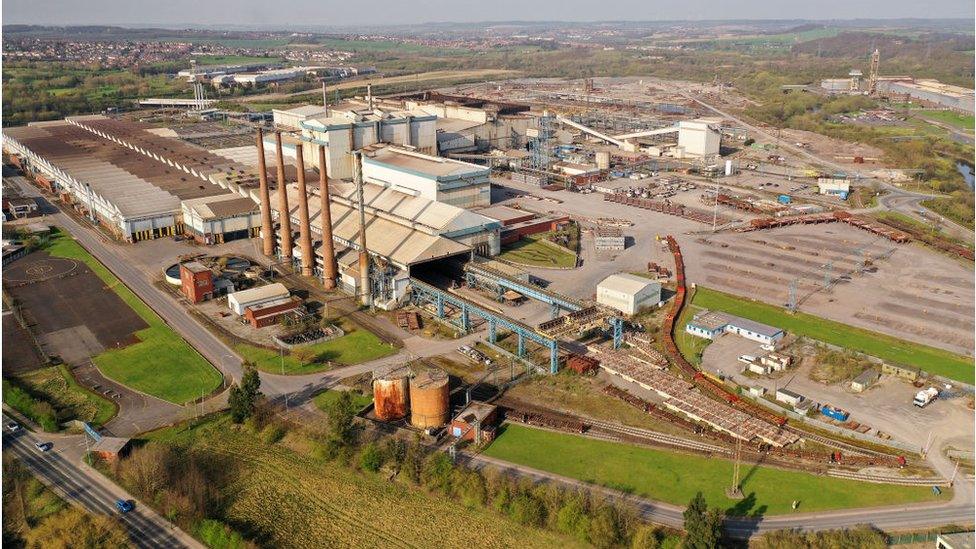
- Published1 April 2021
